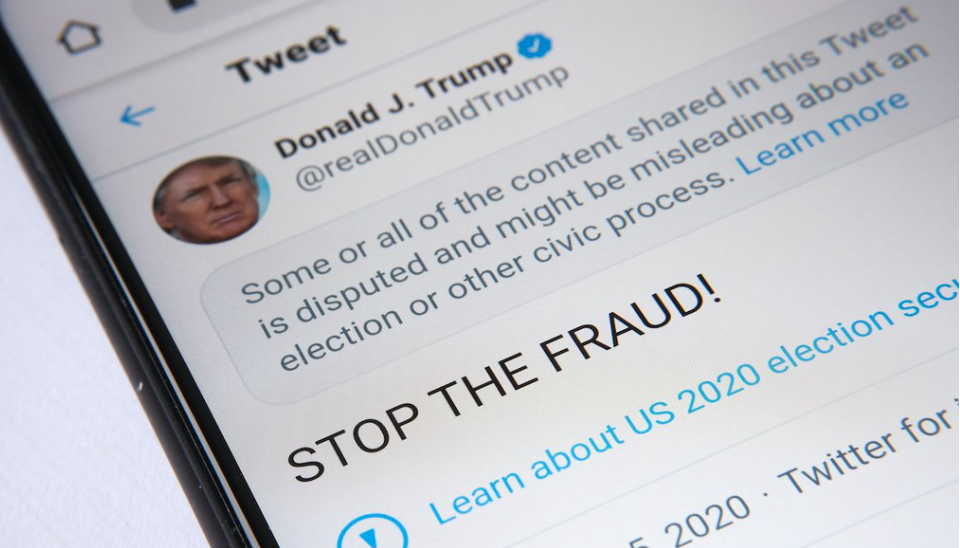
Online misinformation about the 2020 election drove all sorts of real-world consequences, from the Jan. 6 attack on the U.S. Capitol to the then-president of the United States getting banned from Twitter.
Those false claims that the last election was stolen haven’t gone away. Instead, they’re driving new campaign messaging for the 2022 midterm races through ads, videos and misleading memes.
As we reviewed the rules for false claims about elections and voting on social media, we found that determining what gets removed, what gets labeled and what gets downgraded isn’t straightforward. Every platform is different, and their policies aren’t always clearly outlined. Even when policies are clear, platforms may still shift them quickly without making the changes obvious to users.
“One of the things that we see is sometimes platforms go into an election with particular policies, and then a new and novel tactic or dynamic emerges that they didn’t necessarily have a policy for,” said Renne DiResta, research manager at the Stanford Internet Observatory, a lab specializing in social media information.
Lessons from the last presidential election may not apply to the midterms coming up. After the 2016 election, for example, Russian leaders intervened through propaganda and cyberattacks, so social media companies prepared for that familiar fight. But in 2020, many false claims came from Americans themselves.
“Much of the misinformation in the 2020 election was pushed by authentic, domestic actors,” according to the Long Fuse, an extensive analysis of misinformation on social media in 2020.











